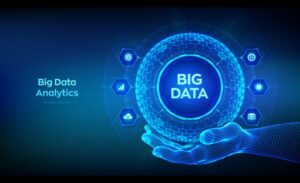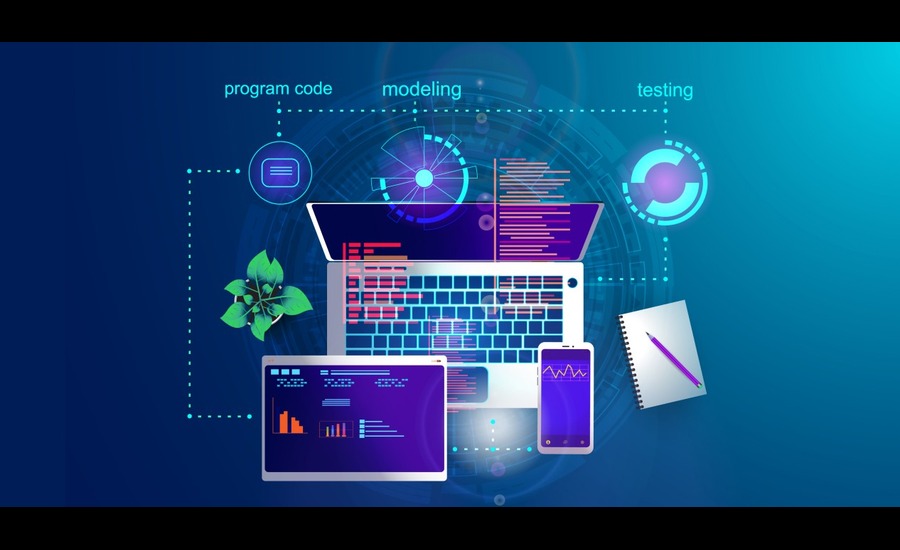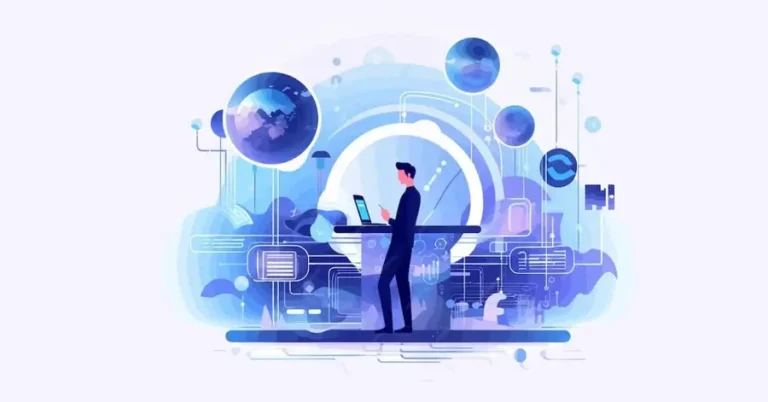Pro-Reed Com Tech Tales: Exploring the Future of Technology
Introduction
Technology has always been a driving force behind human progress, shaping societies, economies, and individual lives in profound ways. As we look towards the future, the role of technology is expected to become even more central. Pro-Reed Com Tech Tales aims to explore this future, examining the innovations and trends that are poised to redefine our world. From artificial intelligence and quantum computing to biotechnology and space exploration, this article delves into the most promising and transformative technological advancements on the horizon.
The Rise of Artificial Intelligence
Artificial intelligence (AI) stands at the forefront of technological innovation, promising to revolutionize industries and daily life alike. AI’s ability to process vast amounts of data, recognize patterns, and make decisions has already begun to transform sectors such as healthcare, finance, and transportation. In healthcare, AI-driven diagnostics and personalized treatment plans are improving patient outcomes and streamlining operations. For example, AI algorithms can analyze medical images with a level of accuracy that rivals or surpasses that of human experts, leading to earlier and more accurate diagnoses.
In the financial sector, AI-powered trading algorithms are optimizing investment strategies, while AI-driven chatbots are enhancing customer service. These applications not only improve efficiency but also create new opportunities for growth and innovation. In transportation, autonomous vehicles powered by AI promise to reduce traffic accidents, improve fuel efficiency, and transform urban planning. The integration of AI into public transportation systems can also enhance the efficiency and accessibility of services, making cities smarter and more livable.
However, the rise of AI also raises important ethical and societal questions. Issues such as data privacy, job displacement, and the potential for AI to perpetuate biases need to be addressed proactively. Ensuring that AI is developed and deployed responsibly will be crucial in maximizing its benefits while minimizing its risks.
Quantum Computing: A New Era of Computational Power
Quantum computing represents a significant leap forward in computational power, with the potential to solve problems that are currently intractable for classical computers. Unlike classical computers, which use bits to represent data as 0s or 1s, quantum computers use quantum bits, or qubits, which can exist in multiple states simultaneously. This property, known as superposition, allows quantum computers to perform many calculations at once, drastically increasing their processing power.
One of the most promising applications of quantum computing is in the field of cryptography. Quantum computers have the potential to break current encryption methods, which rely on the difficulty of factoring large numbers. This has significant implications for data security and privacy, necessitating the development of new, quantum-resistant encryption methods. Additionally, quantum computing can accelerate research in fields such as materials science, drug discovery, and climate modeling by simulating complex systems with unprecedented accuracy.
Despite its potential, quantum computing is still in its early stages, with significant technical challenges to overcome. Building stable qubits and error-correcting mechanisms are among the primary hurdles. However, recent advancements in quantum hardware and algorithms suggest that practical quantum computing may be closer than previously thought. As these technologies mature, they will likely unlock new possibilities and drive innovation across various sectors.

Biotechnology: The Next Frontier in Human Health and Longevity
Biotechnology is another area poised for significant breakthroughs, with the potential to enhance human health and longevity. Advances in gene editing, regenerative medicine, and personalized medicine are paving the way for new treatments and therapies. One of the most notable developments is CRISPR-Cas9, a powerful gene-editing tool that allows scientists to make precise changes to DNA. This technology has the potential to cure genetic diseases, enhance crop resilience, and even combat climate change by engineering organisms to capture more carbon.
Regenerative medicine, which focuses on repairing or replacing damaged tissues and organs, is also making strides. Stem cell therapies and tissue engineering hold promise for treating conditions such as heart disease, diabetes, and spinal cord injuries. Additionally, personalized medicine, which tailors treatments to an individual’s genetic makeup, is improving the effectiveness of therapies and reducing side effects.
While these advancements offer immense potential, they also raise ethical and regulatory challenges. Ensuring the safety and efficacy of new treatments, addressing concerns about genetic modification, and making these technologies accessible to all will be crucial in realizing their full potential. As biotechnology continues to evolve, it will undoubtedly play a central role in shaping the future of healthcare and human wellbeing.
Space Exploration: Expanding Our Horizons
Space exploration has always captured the human imagination, and recent advancements suggest that we are on the cusp of a new era of space travel and discovery. Private companies such as SpaceX and Blue Origin are driving innovation in space technology, with ambitions to make space travel more affordable and accessible. These efforts are paving the way for a range of new possibilities, from space tourism to the colonization of other planets.
One of the most significant milestones in recent years has been the development of reusable rockets, which drastically reduce the cost of launching payloads into space. This innovation has the potential to make space travel more economically viable and sustainable. Additionally, advancements in satellite technology are improving our ability to monitor and understand our planet, from tracking climate change to enhancing global communications.
The exploration of Mars remains a primary goal for many space agencies and private companies. NASA’s Perseverance rover and upcoming missions aim to gather crucial data about the Martian environment, paving the way for future manned missions. Long-term, the colonization of Mars and other celestial bodies could provide new opportunities for human settlement and resource utilization.
While the prospects for space exploration are exciting, they also come with significant challenges. Ensuring the safety of astronauts, addressing the environmental impact of space activities, and navigating the legal and ethical implications of space colonization will be crucial. As we expand our presence in space, it will be important to do so responsibly and sustainably.
The Internet of Things: Connecting Our World
The Internet of Things (IoT) is revolutionizing the way we interact with the world around us, connecting devices and systems to create smarter, more efficient environments. From smart homes and cities to industrial automation and healthcare, IoT is enabling new levels of connectivity and control.
In smart homes, IoT devices such as thermostats, lighting systems, and security cameras can be controlled remotely, enhancing convenience and energy efficiency. Furthermore, in smart cities, IoT sensors can monitor traffic flow, air quality, and infrastructure health, improving urban planning and resource management. In industrial settings, IoT-enabled machinery can optimize production processes, reduce downtime, and enhance safety.
Healthcare is another area where IoT is making a significant impact. Wearable devices and remote monitoring systems can track patients’ vital signs, enabling early detection of health issues and reducing the need for hospital visits. IoT is also enhancing the management of chronic diseases by providing real-time data to healthcare providers.
Despite its potential, the widespread adoption of IoT also raises important security and privacy concerns. Ensuring that IoT devices are secure and that data is protected from cyber threats will be crucial in maintaining trust and maximizing the benefits of this technology. As IoT continues to evolve, it will undoubtedly play a central role in shaping the future of connectivity and automation.
5G Technology: The Next Generation of Connectivity
The rollout of 5G technology promises to usher in a new era of connectivity, with faster speeds, lower latency, and greater capacity than previous generations of wireless networks. This technology has the potential to transform a wide range of industries, from telecommunications and entertainment to healthcare and manufacturing.
One of the most significant benefits of 5G is its ability to support the massive increase in connected devices brought about by the IoT. With faster speeds and lower latency, 5G networks can handle the data demands of smart cities, autonomous vehicles, and industrial automation. This enhanced connectivity will enable new applications and services that were previously not possible.
In the entertainment industry, 5G is expected to drive the adoption of immersive technologies such as virtual reality (VR) and augmented reality (AR). These technologies require high-speed, low-latency connections to deliver seamless experiences, and 5G provides the necessary infrastructure. In healthcare, 5G can support telemedicine and remote surgeries, allowing doctors to perform procedures from a distance with real-time precision.
However, the deployment of 5G also comes with challenges. Building the necessary infrastructure, addressing security concerns, and ensuring equitable access to 5G services will be important in realizing its full potential. As 5G technology continues to roll out globally, it will undoubtedly have a profound impact on the way we live and work.
Blockchain: Beyond Cryptocurrencies
Furthermore, blockchain technology, best known as the foundation of cryptocurrencies such as Bitcoin, has far-reaching applications beyond digital currencies. At its core, blockchain is a decentralized, distributed ledger that records transactions in a secure and transparent manner. This technology has the potential to transform industries by enhancing security, transparency, and efficiency.
In the financial sector, blockchain is enabling new forms of digital payments and financial services. Decentralized finance (DeFi) platforms use blockchain to offer services such as lending, borrowing, and trading without the need for traditional intermediaries. This has the potential to increase financial inclusion and reduce the costs associated with financial transactions.
Blockchain is also being explored for use in supply chain management, where it can improve traceability and reduce fraud. By recording every transaction in the supply chain, blockchain can provide a transparent and tamper-proof record of a product’s journey from manufacturer to consumer. This has significant implications for industries such as food and pharmaceuticals, where traceability and authenticity are critical.
Additionally, blockchain is being used to create new forms of digital identity and secure data sharing. By giving individuals control over their own data, blockchain can enhance privacy and security in the digital age. This is particularly relevant in areas such as healthcare, where secure and interoperable data sharing is essential for patient care.
Despite its potential, blockchain technology is still in its early stages, and there are challenges to overcome. These include scalability, regulatory uncertainty, and the need for standardization. However, as the technology matures, it is likely to have a transformative impact across a wide range of industries.
Cybersecurity: Protecting Our Digital Future
As technology continues to advance, the importance of cybersecurity cannot be overstated. With the increasing digitization of our world, the threat landscape is becoming more complex and sophisticated. Cyberattacks can have devastating consequences, from financial loss and data breaches to disruptions in critical infrastructure.
One of the biggest challenges in cybersecurity is the sheer volume of data that needs to be protected. As more devices become connected and data generation increases, the attack surface grows, making it more difficult to secure. Advanced technologies such as AI and machine learning are being leveraged to enhance threat detection and response, but these tools also pose new risks if not properly managed.
Another significant challenge is the human factor. Social engineering attacks, such as phishing and ransomware, exploit human vulnerabilities to gain access to systems and data. Enhancing cybersecurity awareness and training is crucial in mitigating these risks. Organizations need to adopt a multi-layered approach to cybersecurity, combining technology, processes, and people to effectively protect against threats.
In addition to protecting against cyberattacks, ensuring data privacy is a key concern. Regulations such as the General Data Protection Regulation (GDPR) in Europe and the California Consumer Privacy Act (CCPA) in the US are setting new standards for data protection. Compliance with these regulations requires organizations to implement robust data management practices and be transparent about how they collect, use, and share data.
Furthermore, as we move towards a more connected and digital future, cybersecurity will remain a critical priority. Ensuring that our systems and data are secure will be essential in building trust and enabling the continued growth and innovation of technology.
Ethical and Societal Implications of Technological Advancements
While technological advancements offer immense potential, they also raise important ethical and societal questions. The rapid pace of innovation often outstrips our ability to fully understand and address the implications of new technologies. Ensuring that technology is developed and deployed in a way that benefits society as a whole requires careful consideration and proactive governance.
One of the key ethical concerns is the impact of technology on employment. Automation and AI have the potential to displace jobs, particularly in industries such as manufacturing and logistics. While these technologies can create new opportunities and improve efficiency, they also necessitate a rethinking of education and workforce development to ensure that individuals have the skills needed for the jobs of the future.
Data privacy is another critical issue. The collection and use of personal data by AI and IoT devices raise concerns about surveillance and the potential for misuse. Ensuring that individuals have control over their data and that it is used responsibly is essential to maintaining trust and protecting privacy.
Additionally, the development of advanced technologies such as AI and biotechnology raises questions about fairness and equity. Ensuring that the benefits of these technologies are accessible to all, not just a privileged few, will be crucial in addressing issues of inequality and social justice.
Regulatory frameworks and ethical guidelines play a crucial role in addressing these challenges. Governments, industry, and civil society must work together to develop policies that promote responsible innovation and protect the interests of all stakeholders. This includes fostering transparency, accountability, and inclusivity in the development and deployment of new technologies.
Conclusion
The future of technology is filled with promise and potential, but it also comes with significant challenges and responsibilities. From the rise of AI and quantum computing to the advancements in biotechnology and space exploration, the innovations on the horizon have the potential to transform our world in profound ways. However, realizing the full benefits of these technologies requires careful consideration of their ethical and societal implications.
Furthermore, by fostering responsible innovation and addressing the challenges associated with new technologies, we can build a future that is not only technologically advanced but also equitable and sustainable. Pro-Reed Com Tech Tales aims to continue exploring these themes, providing insights into the latest trends and developments in technology and their impact on society. As we navigate the complexities of the technological future, it is essential to remain mindful of the human element and strive for a world where technology serves the greater good.






